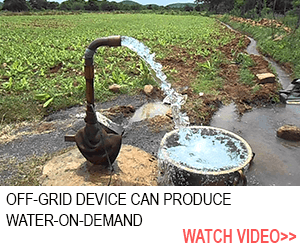Water Filtration and Purification Techniques

Water Filtration and Purification Techniques
Table of Contents
1. The Importance of Water Filtration and Purification
2. Common Water Contaminants
3. Filtration Techniques
– Sediment Filtration
– Activated Carbon Filtration
– Reverse Osmosis
– Ultraviolet Purification
4. Purification Techniques
– Boiling
– Chemical Disinfection
– Distillation
5. Choosing the Right Technique
6. The Future of Water Filtration and Purification
7. Conclusion
The Importance of Water Filtration and Purification
Water is essential for life. But not all water is safe to drink. Contaminants can make water harmful. Filtration and purification make water safe. They remove harmful substances. This article explores different techniques. It helps you choose the right one for your needs.
Common Water Contaminants
Water can contain many harmful substances. These include bacteria, viruses, and chemicals. Heavy metals like lead and mercury are also common. These contaminants can cause illness. They can even be deadly. It is important to remove them from drinking water.
Filtration Techniques
There are many ways to filter water. Each method has its own benefits. Here are some common techniques.
Sediment Filtration
This method removes large particles. It uses a physical barrier. This can be a mesh or a paper filter. It is often the first step in water filtration.
Activated Carbon Filtration
This method uses carbon to remove contaminants. It can remove chemicals and odors. It can also improve the taste of water.
Reverse Osmosis
This method forces water through a membrane. It removes many types of contaminants. It is very effective. But it can be expensive.
Ultraviolet Purification
This method uses UV light to kill bacteria and viruses. It is a chemical-free way to purify water. But it does not remove other types of contaminants.
Purification Techniques
Filtration is not the only way to make water safe. Purification is also important. Here are some common purification techniques.
Boiling
Boiling water kills bacteria and viruses. It is a simple and effective method. But it does not remove chemicals or heavy metals.
Chemical Disinfection
This method uses chemicals to kill contaminants. Chlorine and iodine are common disinfectants. They are effective against many types of bacteria and viruses.
Distillation
This method boils water and then condenses the steam. It removes many types of contaminants. It is very effective. But it can be slow and use a lot of energy.
Choosing the Right Technique
The right technique depends on the water source. It also depends on the contaminants present. Some methods are better for certain types of contaminants. It is important to test the water. This will help you choose the right technique.
The Future of Water Filtration and Purification
New techniques are being developed. They aim to be more effective and efficient. Nanotechnology and bio-filtration are two examples. These techniques could revolutionize water filtration and purification.

Conclusion
Clean water is essential for health. Filtration and purification make water safe to drink. There are many techniques to choose from. Each has its own benefits. It is important to choose the right one for your needs. The future of water filtration and purification is bright. New techniques are being developed. They will make clean water more accessible to all.